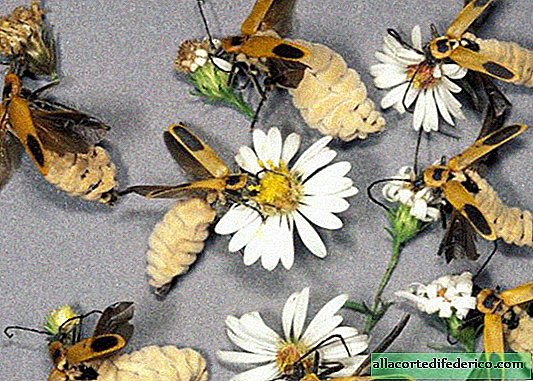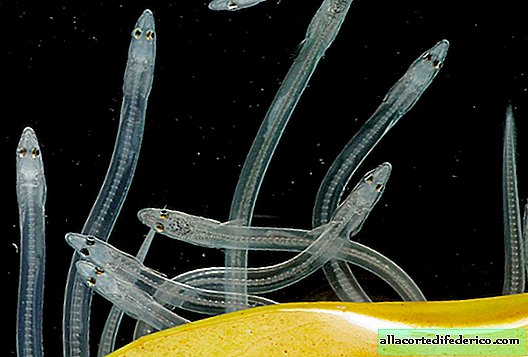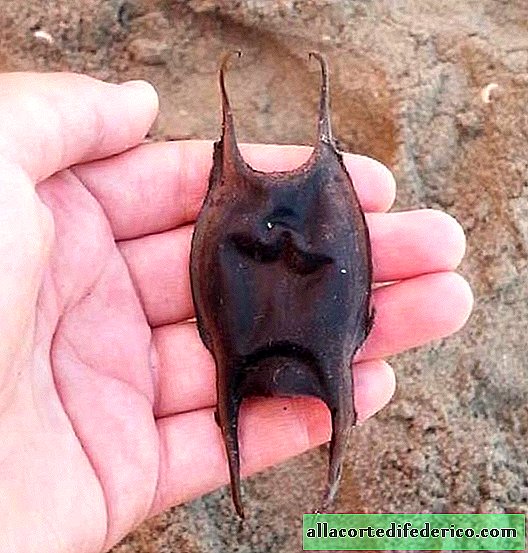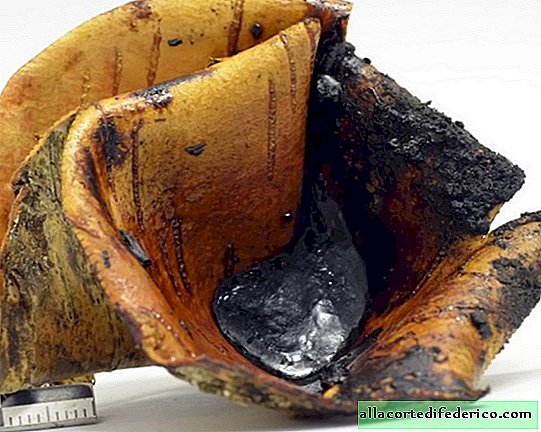Poison Lori: A cute pet, one bite of which can take your life
Lovers of southern countries and exotic animals often have unusual pets at home. Unfortunately, this is not always safe. And while many are aware of poisonous snakes and spiders, few know that cute loris can lead to the death of their masters.

This seems unbelievable, but among our closest relatives, primates, there are species that are capable of producing potent poison. Moreover, these dearest creatures are really dangerous for humans: poison that enters the body through a bite causes anaphylactic shock and death in just 30 minutes.
 Kalimantan Lori
Kalimantan LoriAll poisonous primates belong to the genus thick Lori, the Lorian family. Currently, five species are distinguished among the thick Lori zoologists: small lory (nycticebus pygmaeus), Bengal lory (Nycticebus bengalensis), Javanese lory (Nycticebus javanicus), slow lory (Nycticebus coucang) and Kalimantan lory (Nycticebus men. All of these species are poisonous, so look carefully at how they look.
 Small lory
Small loryThese unusual animals, leading mainly nocturnal lifestyle, live in the tropical forests of Southeast Asia. They can be found in India, southern China, Bangladesh and the islands of Indonesia. The appearance of thick loris is in many respects similar to the rest of the family: large rounded eyes, directed forward thick and soft fur, small size, very small tail, or even its complete absence. Thick loris do not exceed domestic cats in size, and their weight ranges from 300-1600 grams, depending on the species.
 Slow Lori
Slow LoriThe poison in thick loris is secreted by the brachial gland, which is located on the inside of the front legs. If necessary, the animal licks it with its tongue and uses it as self-defense. Thick loris have rather sharp teeth, so they easily bite through the skin, and poison from the mouth enters the victim's body. After a bite, the victim has an allergic reaction to the toxin. In the case of a person, this leads to anaphylactic shock and death in the absence of medical intervention. Unfortunately, the victim has no more than 30 minutes to save the life.
 Bengali lori
Bengali loriIn their homeland, in Southeast Asia, fat Lori often become victims of local residents. They are caught for the manufacture of various traditional medicine, as well as for sale as pets.
 Javanese lory
Javanese loryThere are also such lovers of exotic animals who keep poisonous loris at home. On the Internet, you can even find information that thick loris, although they have poisonous glands, do not use them in domestic conditions. It sounds optimistic, but this is nothing more than a tricky trick of the seller who wants to sell live goods. In addition, cute thick loris are often used for photo shoots at various exhibitions, as well as for entertaining tourists in tropical countries.

Fans of exotics should know that the thick loris offered on the market of exotic animals are just wild animals that are caught for sale, and not grown in special nurseries, as sellers sometimes assure. Therefore, we are not talking about any “domestication” and should not be fooled by the fact that Lori will become safe in a couple of months. The tragic incident that happened to the mistress of a fat lori in St. Petersburg is widely known: the male, for some unknown reason, became aggressive and bit the girl. The hostess, fortunately, remained alive, but spent several days in intensive care.

The material is copyrighted, when copying a link to an article or travelask.ru site is required

















